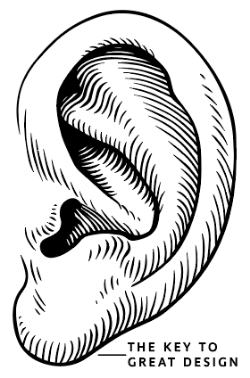Why is writing so difficult? I love to write. It is the single most cathartic practice I’ve ever indulged in. Better than exercise. More rewarding than any other creative pursuit for my money. I intend to write daily and end up writing far less frequently. Without a doubt, I am the architect of my own demise when it comes to writing and the dichotomy between desire and execution is depressing to a point approaching the need to punish myself for being… lazy?
I’ve read (has to be) the entire sum of what the experts have to say about preparing to write. I create sufficient opportunity for it to happen. I read all the time. Like, ALL the time. I constantly jot down notes about potential subject matter. I discuss what I’d like to write about with other writers. I employ a myriad of software solutions to start writing, keep writing, edit with peers, share ideas, track progress, nudge… I’m writing in one right now, and it’s good. I’m happy, in the zone, in my element. The brain is alive and sufficiently challenged. But it won’t last. It never does and I am truly, emphatically repentant.
When I’ve written something, anything, I’ll immediately share it with loved ones, friends, colleagues, the general internet public… I solicit feedback, I crave it, whether it be brutal criticism or tacit confirmation of my genius. It’s thrilling and the visceral sense of accomplishment is absolutely addictive. A healthy addiction even, one you can’t put a price on.
So why, for the love of all things Holy, is writing more often than not a source of self-flagellation rather than bliss? I’m confident in my ability (that is to say I like what I write and that’s usually good enough). I’m constantly within arms reach of the tools. The written word has been a steady companion all of my life and yet, like a playful puppy with a ball, when I reach for the inspiration the paragraphs dart off just out of reach and stare me down, mocking my ambition.
From early childhood on, my mother prompted me to read from the dictionary regularly. She shared her passion for language with my sister and I, molding us into “those kids” in class — the ones that busted out the big vocabulary drawing jeers and spitwads. I still endure the good-natured taunts of my significant other as I drop “antidisestablishmentarianism” as we discuss the first amendment for one of her online classes.
It is not for lack of language, nor thoughts on just about everything that stays my ability to write it down already. I don’t particularly lament poor grammar or spelling, punctuation or even lack of discernable structure in a composition (at least when I’m the transgressor). I’m not particularly reticent at the prospect of an audience (with the exception of email). I don’t consider crafting ten to twenty emails a day writing, so much as conversing in absentia. But I digress.
I never regret having spent time translating my thoughts into words and committing them to analog or digital media. That is to say writing never makes me sad. On the contrary, the act is one of genuine Zen, a pure cathartic release. I’m hard-pressed to connect the imposter syndrome that renders me immobile in the face of design projects to the phenomenon of staring at a blank page for twenty minutes and then just… not writing a single word.
Perhaps it’s not the act itself that eludes us. Perhaps it is the potentiality of written word that weighs us down.
The venerable Anne Lamott wrote it best:
“Writing and reading decrease our sense of isolation. They deepen and widen and expand our sense of life: they feed the soul. When writers make us shake our heads with the exactness of their prose and their truths, and even make us laugh about ourselves or life, our buoyancy is restored. We are given a shot at dancing with, or at least clapping along with, the absurdity of life, instead of being squashed by it over and over again. It’s like singing on a boat during a terrible storm at sea. You can’t stop the raging storm, but singing can change the hearts and spirits of the people who are together on that ship.”
― Anne Lamott, Bird by Bird: Some Instructions on Writing and Life
Perhaps Paralipophobia is as an apt a diagnosis as any. In my case, though I’m rarely writing anything of even minimal importance to anyone but myself, I feel a tremendous sense of duty to the craft. The written word, both factual and fictional, has been the catalyst for monumental moments throughout history. That I tend to write almost exclusively now in a media that is ubiquitous and relentlessly scrutinized, may indeed give me pause.
Then again, I may just love it too much, appending to the act the trepidation of a first kiss. You just have to lean in and let kinetics take over.

